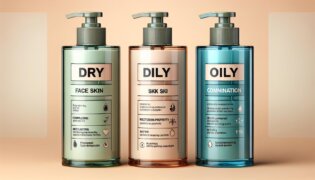It is recommended to reschedule your Botox appointment if you have a cold, as it may increase the risk of complications and affect your immune system’s ability to heal.
Cold and Botox: Risks and Complications
Having a cold weakens your immune system, making you more susceptible to infections around the injection site. Swelling and bruising may be more severe, which can affect the desired outcome of your Botox treatment.
Skincare Logix: Providing Skincare Solutions
At Skincare Logix, we prioritize safety and efficiency in addressing our readers’ skincare needs. We strive to provide accurate information through a blog about skincare to help you make well-informed decisions about your skin treatments.
Skin Tags and Skin Tags Remover
Skin tags are benign growths that can appear anywhere on your body, and can be safely addressed with various removal methods. Our Skincare Logix blog offers valuable insights on different skin tags removers, including over-the-counter products, cryotherapy, and other minimally invasive procedures.
Can You Get Botox If You Have a Cold?
Getting Botox when you have a cold isn’t the best idea. Your body needs to be in optimal condition for any procedure, including Botox injections. In this blog post, we delve into the reasons behind rescheduling your Botox appointment until after you’ve recovered.
Reduced Immune Function and Botox
When you have a cold, your immune system is busy fighting off viruses. Undergoing Botox injections during this time can strain your body’s already weakened defense mechanisms, increasing the risk of infection or complications. Skincare Logix always advocates for prioritizing health before beauty, which is why we recommend waiting until you’re in better health to undergo the procedure.
Increased Chance of Side Effects
Aside from the higher risk of infection, a cold may also increase the chance of side effects from Botox injections. Symptoms such as nasal congestion, sneezing, or coughing can cause unwanted facial movements that could potentially impact the diffusion of the product, leading to suboptimal results. Moreover, the risk of bleeding or bruising may be heightened due to the sinus congestion that the cold might cause.
Skincare Logix: Expert Advice for Your Botox Questions
At Skincare Logix, your well-being is our priority. Our a blog about skincare covers various topics, addressing concerns in a clear and concise way. We always prioritize your health and want you to get the most out of your skincare treatments, including Botox.
Considerations for Future Botox Appointments
When preparing for your next Botox treatment, follow these steps to ensure the best outcome:
- Maintain a strong immune system through a healthy diet, exercise, and plenty of sleep.
- Reschedule your appointment if you’re feeling sick, as your well-being comes first.
- Consult your skincare professional about any concerns or questions you may have regarding Botox injections.
Remember, your health should always come first in any situation, including Botox treatments. Subscribe to Skincare Logix for more helpful tips and advice
FAQ Section: Botox and Colds
Below, we answer common questions related to Botox injections and having a cold, providing additional insight that can aid in your decision-making process when considering this treatment.
What are the common side effects of Botox injections if I have a cold?
Some common side effects of getting Botox while having a cold include increased chance of infection, prolonged swelling, and excessive bruising. Results may also be affected by facial muscle movements triggered by sneezing or coughing.
How long should I wait after recovering from a cold to get Botox injections?
You should wait until you’re symptom-free and feel fully recovered before rescheduling your Botox appointment. Usually, it’s safe to wait a week after your cold symptoms have subsided.
Can having a fever affect my Botox treatment results?
Yes, having a fever can potentially affect your Botox results. High body temperature can interfere with the action of the neurotoxin, possibly reducing its efficacy or altering the outcome. It’s best to wait until you’re fever-free before getting Botox injections.
Will my cold medication impact the effectiveness of Botox?
Some cold medications, such as anticoagulants or anti-inflammatory drugs, might influence the outcome of your Botox treatment. These medications may increase the risk of bruising and swelling. Consult your healthcare provider before your Botox appointment to ensure your medications won’t hinder your treatment.
Can Botox help alleviate cold-related nasal congestion or headache?
Even though Botox has been used to treat certain types of headaches, such as migraines, it’s not proven to benefit cold-related symptoms like nasal congestion or headaches. It’s best to consult your healthcare provider regarding appropriate treatments for cold symptoms.




















